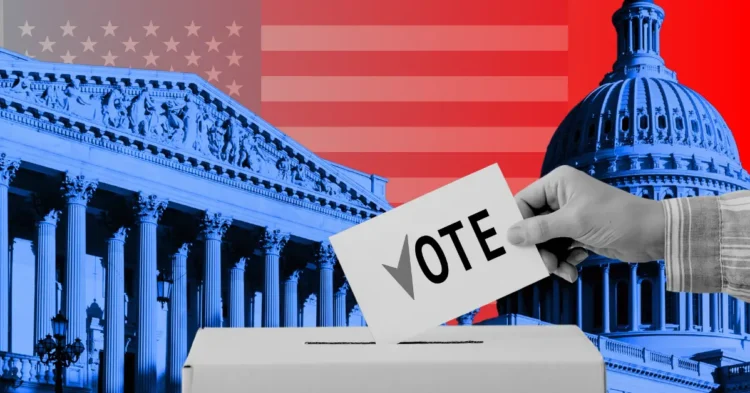As the United States gears up for Election Day, Ohio’s Senate race emerges as a pivotal battleground, highlighted by significant financial contributions from the cryptocurrency sector. This high-stakes contest features Democratic Senator Sherrod Brown facing off against Republican contender Bernie Moreno, with both candidates in a tight race bolstered by substantial crypto investments aimed at swaying the outcome.
Pro-Crypto Super PAC Dominates Ad Spend
The pro-crypto advocacy group, Defend American Jobs (DAJ), backed by industry giants such as Coinbase and Ripple, has launched an enormous $40.8 million television advertising campaign. This initiative is crafted to elevate Bernie Moreno’s profile among Republican voters and undecided constituents. DAJ’s financial involvement positions it as the largest spender in the Ohio Senate race thus far, having contributed to a cumulative advertising expenditure of over $170 million for both candidates.
This aggressive financial strategy is part of a broader effort by pro-crypto Political Action Committees (PACs), which have collectively channeled over $130 million into congressional races during this election cycle. A DAJ spokesperson articulated the group’s objective to secure a pro-crypto candidate’s victory in a historically challenging environment for the industry. Prior to DAJ’s engagement, Brown held a lead in the race, but the super PAC’s comprehensive campaign is said to have altered the dynamics significantly.
Brown vs. Moreno: Opposing Views on Crypto
At the heart of this electoral contest lies a stark contrast in perspectives on cryptocurrency between the two candidates. Bernie Moreno, with a background as a blockchain entrepreneur, advocates for the crypto sector and aims to bring supportive views to the Senate. Meanwhile, Sherrod Brown stands as a vocal critic of digital assets, pushing for stringent regulations. As the chair of the Senate Banking Committee, Brown plays a pivotal role in shaping legislation related to digital currencies and influencing the operations of regulatory bodies like the SEC. His alliance with anti-crypto Senator Elizabeth Warren further underscores his opposition to the burgeoning industry.
Beyond Crypto: A Republican Shift
While the crypto debate takes center stage, the broader political implications of this race cannot be overlooked. For Republicans, this election offers a crucial opportunity to secure a Senate seat in a state that has been trending Republican in recent years. For crypto advocates, Moreno’s potential victory could introduce a robust voice for digital assets in Congress, potentially leading to more favorable regulatory conditions for the industry.
With millions of dollars in campaign funds at stake, the outcome of Ohio’s Senate race could profoundly influence both the political landscape and the future of cryptocurrency policy in Washington. As voters prepare to cast their ballots, the intersection of money, politics, and digital innovation continues to shape this critical electoral showdown.











